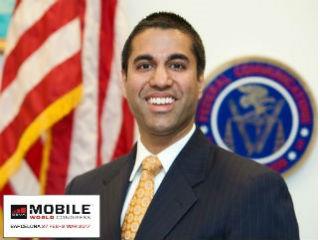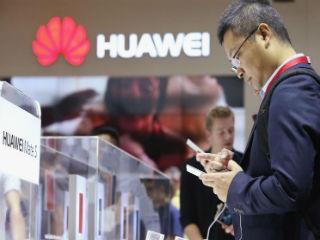
Start-ups won’t save the economy. But ‘scale ups’ could
By: EBR | Friday, March 31, 2017
Although the notion that entrepreneurship benefits society has attained broad currency in Latin America and elsewhere, confusion reigns

The black box of executive compensation
By: EBR | Thursday, March 23, 2017
German companies need to do much more to live up to the transparency standards required by democracy in the age of globalization

The finance world’s short-termism will destroy our communities, economies and the planet
By: EBR | Friday, March 17, 2017
Banks and financial institutions are (still, mostly) macho, testosterone-fuelled environments where making the quick buck trumps almost every other consideration

The world’s 10 biggest economies in 2017
By: EBR | Friday, March 17, 2017
The economy of the United States is the largest in the world. At $18 trillion, it represents a quarter share of the global economy (24.3%), according to the latest World Bank figures

GSMA Survey: 5G expect to be widely available in 2020
By: N. Peter Kramer | Monday, March 6, 2017
5G is a far more complex migration than that of 3G to 4G. Is the expectation of its arrival likely to be over-enthusiastic at best and unrealistic at worst?

Huawei made its mark early at the MWC 2017
By: N. Peter Kramer | Monday, March 6, 2017
Huawei made is marks early at this year’s Mobile World Congress, unveiling its new P10 flagship smartphones and smart watches

Big data: how much is too much?
By: EBR | Friday, March 3, 2017
Big data could soon allow us to shape public policy, financial products, healthcare and education to suit our personal needs

Trump’s FCC man Ajit Pai takes a more deregulatory way than his Democratic predecessor
By: N. Peter Kramer | Thursday, March 2, 2017
Barely five weeks into his new role as chairman of the US Federal Communications Commission (FCC), the Republican Ajit Pai, criticised the regulatorily approach to broadband by his predecessor, the Democrat Tom Wheeler

What does the future of jobs look like? This is what experts think
By: EBR | Thursday, March 2, 2017
The jobs we have today won't will not be the ones that we have tomorrow. Neither will the skills. So what will the future of jobs look like, and what should we be doing to prepare? This is what the experts think

Crucial decision to allow a risk-based approach for electronic payments
By: EBR | Tuesday, February 28, 2017
In light of the publication of the Regulatory Technical Standards (RTS) on Strong Customer Authentication (SCA) by the European Banking Authority (EBA), Ecommerce Europe welcomes the decision to introduce transactional risk-based assessments for electronic payments up to €500

These are the industries attracting the most venture capital
By: EBR | Friday, February 17, 2017
Venture capital - the money provided by investors to startup firms and small businesses showing potential for long-term growth – is generally thought of as “good capital”

Huawei goes all out on video, 5G and cloud at MWC17
By: EBR | Tuesday, February 14, 2017
Huawei used its pre-Mobile World Congress 2017 media briefing to position itself as “the real business partner for operators”, stating that “only when the carriers grow can Huawei grow”.

How the market reacts to media “bias”
By: EBR | Monday, February 13, 2017
The stock market is incapable of distinguishing between actual and perceived media bias

Telefónica selects Huawei to build EPC network in 13 countries
By: N. Peter Kramer | Monday, February 13, 2017
Telefónica announced its cooperation with Huawei in virtual environments

What cyber-security insiders discussed at Davos 2017
By: EBR | Friday, February 10, 2017
When global leaders met recently for the World Economic Forum’s annual summit in Davos, Switzerland, there was much talk regarding the threats to globalization from political changes in Western countries

Huawei’s culture drives growth
By: N. Peter Kramer | Monday, February 6, 2017
‘Huawei’s culture drives growth’ was the heading of an article in the Wall Street Journal, a few weeks ago

7 myth-busting reasons we should be investing in women
By: EBR | Friday, February 3, 2017
“Women are better suited for baby-making than money-making.” It sounds ridiculous today, but myths like this – based on no scientific evidence – drove the decisions of our forefathers (and foremothers) for generations

What now for global trade? 8 things we learned from Davos 2017
By: EBR | Friday, February 3, 2017
It’s been an eventful 12 months for global trade. The UK voted for Brexit, the US elected Donald Trump, and anti-globalization sentiment surged across many regions

Business leaders optimistic about future, despite popular discontent
By: EBR | Tuesday, January 17, 2017
Despite the challenging political context and the uncertainty around the new Trump administration, the US surpassed China this year as the most important potential source of economic growth over the coming year

These are the most inclusive economies in the world
By: EBR | Tuesday, January 17, 2017
Slow growth and rising inequality have reached a tipping point in many of the world’s advanced economies



 By: N. Peter Kramer
By: N. Peter Kramer

